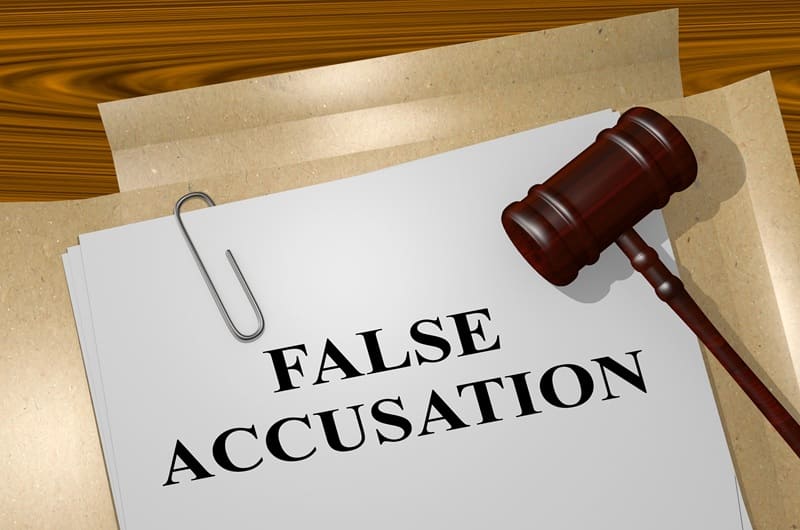Key Steps In Business Valuation For Divorce
Key Steps In Business Valuation For Divorce
Divorce can disrupt many aspects of life—emotions, relationships, and even financial stability. But what happens when a business is on the table? Business valuation during a divorce may surprise you. You won’t just divide obvious assets like homes, savings, and personal belongings. The process involves much more than you might expect.
Whether you’re the business owner or the spouse of one, this guide provides the clarity you need. It explains how Virginia values different assets in divorce and outlines the steps for dividing them. Learn what factors the court considers and how a skilled divorce attorney can help you secure a fair outcome.
Business Valuation & Division In A Virginia Divorce
When married couples file for divorce, they divide assets acquired during the marriage, including any businesses owned by one or both spouses. Virginia courts use valuations to determine the worth of particular possessions during property division. Unlike artworks or cars, enterprises require a more comprehensive professional assessment to establish value.
Equitable Distribution
The valuation guides Virginia’s equitable distribution of assets, meaning the court divides property fairly, not equally. This process considers various factors, such as spouses’ financial and non-financial contributions. A vital part of the process is distinguishing between marital and separate property.
Separate property, like those owned before the marriage or received through inheritance or gifts, typically remains safe from division. However, if marital funds or efforts contributed to a business’s growth, that increase in value may make the business part of the marital property. This critical distinction drives intense legal scrutiny during divorce proceedings.
Intrinsic Value
The standard of value for measuring a business’s worth in Virginia divorce cases is the intrinsic value. This approach focuses on what the company is worth specifically to each spouse rather than what it might sell for on the open market. It takes into account various factors, including both financial and personal considerations.
For instance, courts may evaluate how long the owner intends to keep the business or their retirement plans. Unlike market value, which is based purely on buyer interest, intrinsic value reflects the unique circumstances of the company and its role in the lives of the divorcing parties. This method ensures a more personalized valuation aligned with Virginia’s equitable distribution principles.
An accurate valuation clarifies financial negotiations and reduces conflicts. Both spouses benefit from understanding the business’s worth and how it affects the division of assets. To fully grasp this process, exploring the key factors that influence a business’s value is essential. These elements form the backbone of any valuation and directly impact the outcome of a divorce case.
Factors That Determine The Value Of A Business
Valuing a company requires more than examining its financial records. Internal and external factors both influence its worth. Each enterprise has unique attributes, and its valuation reflects a mix of elements that highlight its monetary health, market position, and long-term potential.
Nature Of The Business
The structure and type of a business significantly influence its valuation. Service-based companies often derive value from client relationships and specialized skills, while retail or manufacturing businesses may rely more on physical inventory and equipment. The ownership structure, whether a sole proprietorship, partnership, or corporation, further affects how courts assess and divide the business during divorce proceedings.
Financial Performance
A company’s revenue, profitability, and cash flow trends provide a snapshot of its financial strength. Evaluating several years of activity helps account for seasonal fluctuations or market changes. Strong economic history typically results in higher valuations, while inconsistencies or heavy debts may reduce worth.
Market Conditions
External factors like industry trends, economic conditions, and competition influence a business’s current and future value. A company thriving in a growing industry will often have a higher valuation. Conversely, operating in a saturated or declining market may limit one’s profitability and reduce its overall worth.
Assets & Liabilities
A business’s value also depends on its assets and liabilities. Tangible assets, including real property, inventory, and equipment, are easy to assess. Intangible assets, like trademarks, patents, or goodwill (such as reputation and customer relationships), require more effort to quantify but hold equal importance. Subtracting liabilities, including loans or unpaid accounts, from the total asset value reveals the business’s financial standing.
Future Earning Potential
Projected growth and earning potential are critical to determining value. Factors like historical earnings, long-term contracts, expanding customer bases, or entry into emerging markets add to a business’s appeal. A well-positioned company with clear growth opportunities could receive a higher valuation than one with stagnant or uncertain prospects.
Together, these factors provide a comprehensive view of a business’s worth. They set the groundwork for applying specific methods and steps to calculate the final valuation. Understanding how these elements come together ensures the process is thorough and produces a fair result.
Steps Involved In The Process
Valuing a business during divorce requires a structured and systematic approach. Each step builds upon the last to produce a clear and defensible valuation. This gives both parties confidence in the final valuation.
Select A Qualified Valuation Professional
A licensed professional, like a Certified Public Accountant (CPA) or a neutral third-party appraiser, conducts the valuation process. They review financial data, evaluate market conditions, and apply suitable valuation methods. Courts rely on their reports and testimony to make informed decisions. Choosing a professional with relevant experience in divorce-related valuations ensures credibility and thorough analysis.
Gather & Analyze Financial Information
A thorough valuation requires access to comprehensive financial records. These typically include tax returns, profit and loss statements, balance sheets, and shareholder agreements. Additional documents, such as loan agreements or customer contracts, may also be relevant. Full transparency in sharing financial information is not only necessary but legally required to avoid disputes or penalties.
Apply An Appropriate Valuation Method
Valuation methods in divorce cases depend on the business’s nature, financial details, and the specific circumstances of the divorce. The process of determining intrinsic value typically involves three commonly used valuation models.
- Income-Based: Projects future earnings and discounts them to their present value, focusing on the business’s potential profitability.
- Market-Based: Compares the business to similar companies recently sold, providing a benchmark value.
- Asset-Based: Evaluates the business’s assets and subtracts liabilities, often used for companies with significant tangible holdings.
The choice of method is determined based on the unique aspects of the business, with some valuations using a combination of approaches for greater accuracy. Licensed appraisers and attorneys provide critical guidance to ensure the correct method is applied.
Divide The Business
After completing the valuation, the next step involves dividing the business as part of the property settlement. Although the court makes the final decision, couples can negotiate and resolve the division of assets with the help of mediators or attorneys before presenting it to the judge. The distribution depends on each spouse’s circumstances and preferences, including their desired level of involvement in the company after the divorce. Common outcomes and strategies include:
- Buyout: One spouse retains the business by purchasing the other’s share.
- Co-Ownership: Both parties continue to own the enterprise together, requiring a strong level of trust and collaboration.
- Sale: The company is sold, and the proceeds are divided between the spouses.
- Asset Swap: One spouse keeps the business, while the other receives assets of equivalent value, such as real estate or investments.
However, when spouses fail to reach a mutual agreement, the court steps in and determines the outcome based on Virginia’s equitable distribution laws. These legal proceedings add complexity, making reliable legal support essential for achieving a balanced resolution.
How Legal Guidance Helps You Navigate Valuation
Working with an attorney provides a smoother approach to the complexities of business valuation during a Virginia divorce. A skilled family law attorney protects your interests and ensures the process follows legal standards. They guide you through every step, from selecting a qualified valuation professional to analyzing financial documents.
Furthermore, attorneys advocate for your interests during negotiations or court proceedings. They review the valuation report to confirm it accurately represents your venture’s worth. If disputes arise over the valuation or division of the business, your attorney presents evidence and arguments to support your position effectively.
Lawyers also work closely with professionals to account for all relevant factors, including financial performance and long-term earning potential. This collaboration results in a thorough and credible valuation, giving you greater confidence. Additionally, they manage legal filings and deadlines to avoid costly mistakes or delays.
With experienced guidance, you can navigate the challenges of business valuation more effectively and achieve a resolution that protects your future. Tap into the skills of a reliable firm to ensure a smoother transition to life after divorce.
The Irving Law Firm Defends Your Interests In Divorce
Dividing a business in divorce can feel like walking a financial tightrope. Every decision carries weight and could turn your entire financial outlook upside down. At The Irving Law Firm, we know how critical it is to protect your interests, whether fighting to keep the business you built or ensuring you receive your fair share of its value.
Our team has extensive experience handling divorces with complex property divisions, including cases involving enterprises of all sizes. We work closely with trusted valuation professionals to ensure the worth of the business is assessed accurately and fairly. From selecting the proper valuation method to analyzing financial disclosures, we help protect what matters most to you.
We understand how divorce can disrupt financial security and emotional well-being. That’s why we prioritize each client’s personal goals in every case. Whether advocating for you in court or negotiating an agreement, our team works to resolve disputes efficiently and effectively. With The Irving Law Firm, you’ll have a dedicated partner committed to securing a fair and equitable outcome.
Summary
Business valuation in Virginia divorce ensures equitable division by reflecting the company’s unique worth to each spouse. Factors including financial performance, market conditions, and future earning potential help determine the venture’s value. From hiring professional appraisers to choosing valuation methods and dividing the business, skilled attorneys protect your interests at every stage.
The Irving Law Firm offers the legal support you need to make informed decisions and secure fair outcomes. Whether you own a business or are married to someone who does, our team guides you through the process with skill and care. Start resolving your divorce confidently with our help.






